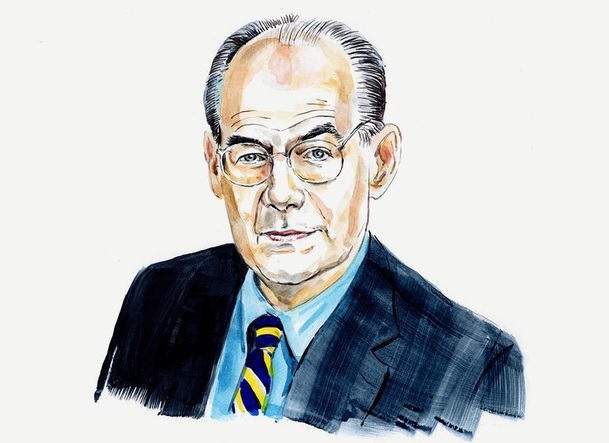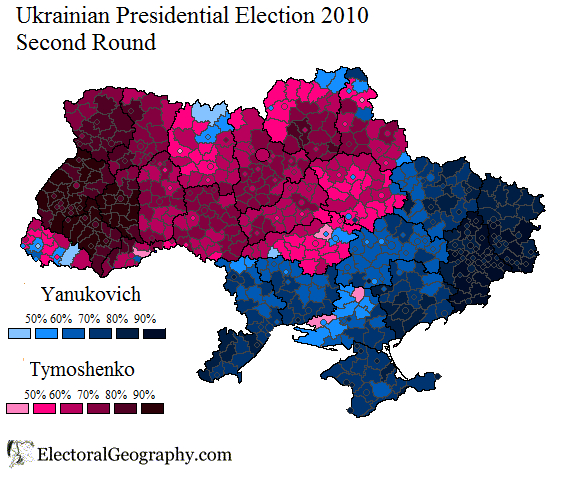“My argument is that the West, especially the United States, is principally responsible for this disaster. But no American policymaker is going to acknowledge that line of argument. So they will say that the Russians are responsible.”
John Mearsheimer (February 2022)

March 3 2022 — In order to come up with the optimum plan for ending the crisis, it is essential to know what caused the crisis. Regarding the all-important question of causes, the key issue is whether Russia or the West bears primary responsibility. Follow us on Twitter: @Intel_Today
“The war in Ukraine is the most dangerous international conflict since the 1962 Cuban missile crisis. Understanding its root causes is essential if we are to prevent it from getting worse and, instead, to find a way to bring it to a close.”
John Mearsheimer
UPDATE (March 28 2022) — The Economist has published a very important essay by John Mearsheimer on why the West is principally responsible for the Ukrainian crisis.
There is no question that Vladimir Putin started the war and is responsible for how it is being waged. But why he did so is another matter. The mainstream view in the West is that he is an irrational, out-of-touch aggressor bent on creating a greater Russia in the mould of the former Soviet Union. Thus, he alone bears full responsibility for the Ukraine crisis.
But that story is wrong. The West, and especially America, is principally responsible for the crisis which began in February 2014. It has now turned into a war that not only threatens to destroy Ukraine, but also has the potential to escalate into a nuclear war between Russia and NATO.
(…)
As America’s former ambassador to Moscow Michael McFaul notes, Mr Putin’s seizure of Crimea was not planned for long; it was an impulsive move in response to the coup that overthrew Ukraine’s pro-Russian leader. In fact, until then, NATO expansion was aimed at turning all of Europe into a giant zone of peace, not containing a dangerous Russia. Once the crisis started, however, American and European policymakers could not admit they had provoked it by trying to integrate Ukraine into the West. They declared the real source of the problem was Russia’s revanchism and its desire to dominate if not conquer Ukraine.
My story about the conflict’s causes should not be controversial, given that many prominent American foreign-policy experts have warned against NATO expansion since the late 1990s. America’s secretary of defence at the time of the Bucharest summit, Robert Gates, recognised that “trying to bring Georgia and Ukraine into NATO was truly overreaching”. Indeed, at that summit, both the German chancellor, Angela Merkel, and the French president, Nicolas Sarkozy, were opposed to moving forward on NATO membership for Ukraine because they feared it would infuriate Russia.
The upshot of my interpretation is that we are in an extremely dangerous situation, and Western policy is exacerbating these risks. For Russia’s leaders, what happens in Ukraine has little to do with their imperial ambitions being thwarted; it is about dealing with what they regard as a direct threat to Russia’s future. Mr Putin may have misjudged Russia’s military capabilities, the effectiveness of the Ukrainian resistance and the scope and speed of the Western response, but one should never underestimate how ruthless great powers can be when they believe they are in dire straits. America and its allies, however, are doubling down, hoping to inflict a humiliating defeat on Mr Putin and to maybe even trigger his removal. They are increasing aid to Ukraine while using economic sanctions to inflict massive punishment on Russia, a step that Putin now sees as “akin to a declaration of war”.
America and its allies may be able to prevent a Russian victory in Ukraine, but the country will be gravely damaged, if not dismembered. Moreover, there is a serious threat of escalation beyond Ukraine, not to mention the danger of nuclear war. If the West not only thwarts Moscow on Ukraine’s battlefields, but also does serious, lasting damage to Russia’s economy, it is in effect pushing a great power to the brink. Mr Putin might then turn to nuclear weapons.
At this point it is impossible to know the terms on which this conflict will be settled. But, if we do not understand its deep cause, we will be unable to end it before Ukraine is wrecked and NATO ends up in a war with Russia.
John J. Mearsheimer is the R. Wendell Harrison Distinguished Service Professor of Political Science at the University of Chicago.
END of UPDATE
“Expanding NATO would be the most fateful error of American policy in the post cold-war era. Such a decision may be expected . . . to impel Russian foreign policy in directions decidedly not to our liking.”
A Fateful Error
Diplomat-historian George F. Kennan
(Feb. 5, 1997)
UPDATE (March 5 2022) — William Burns 2008 Cable : “NYET MEANS NYET: RUSSIA’S NATO ENLARGEMENT REDLINES”
In February 2008, William Burns — Then US ambassador in Moscow and now CIA Director — wrote the following cable: NYET MEANS NYET: RUSSIA’S NATO ENLARGEMENT REDLINES.
Part of the cable reads:
“Ukraine and Georgia’s NATO aspirations not only touch a raw nerve in Russia, they engender serious concerns about the consequences for stability in the region.
Not only does Russia perceive encirclement, and efforts to undermine Russia’s influence in the region, but it also fears unpredictable and uncontrolled consequences which would seriously affect Russian security interests.
Experts tell us that Russia is particularly worried that the strong divisions in Ukraine over NATO membership, with much of the ethnic-Russian community against membership, could lead to a major split, involving violence or at worst, civil war.
In that eventuality, Russia would have to decide whether to intervene; a decision Russia does not want to have to face.”
One should never attribute to malice that which can be adequately explained by stupidity, but, as Einstein argued, don’t rule out malice!
END of UPDATE
“If in 10 years, all American troops stationed in Europe for national defense purposes have not been returned to the United States, then this whole project [NATO] will have failed.”
Gen. Dwight D. Eisenhower (February 1951)
John Joseph Mearsheimer is an American political scientist and international relations scholar, who belongs to the realist school of thought. He is the R. Wendell Harrison Distinguished Service Professor at the University of Chicago. He has been described as the most influential realist of his generation.
Professor Mearsheimer predicted the current crisis a decade ago. Today, he assesses the causes of the the crisis, the best way to end it, and its consequences for all of the main actors.
In a recent conference [The Causes and Consequences of the Ukraine Crisis] Professor Mearsheimer explains clearly, in very simple terms, why the West — Not the Russians — is principally responsible for this tragedy.
This of course is not the conventional wisdom in the United States and Europe. But serious intellectuals such Henry Kissinger and Noam Chomsky fully agree with this assessment of the situation.
“Everyone is entitled to his own opinion, but not his own facts.” And the facts are very clear…

The Causes and Consequences of the Ukraine Crisis
REFERENCES
A Fateful Error — George F. Kennan (NYT, Feb. 5, 1997)
Why John Mearsheimer Blames the U.S. for the Crisis in Ukraine — The New Yorker
=
The Causes and Consequences of the Ukraine Crisis [John Mearsheimer]
The Causes and Consequences of the Ukraine Crisis [UPDATE — William Burns 2008 Cable : “NYET MEANS NYET: RUSSIA’S NATO ENLARGEMENT REDLINES”]
The Causes and Consequences of the Ukraine Crisis [UPDATE — The Economist : “Why the West is principally responsible for the Ukrainian crisis”]
